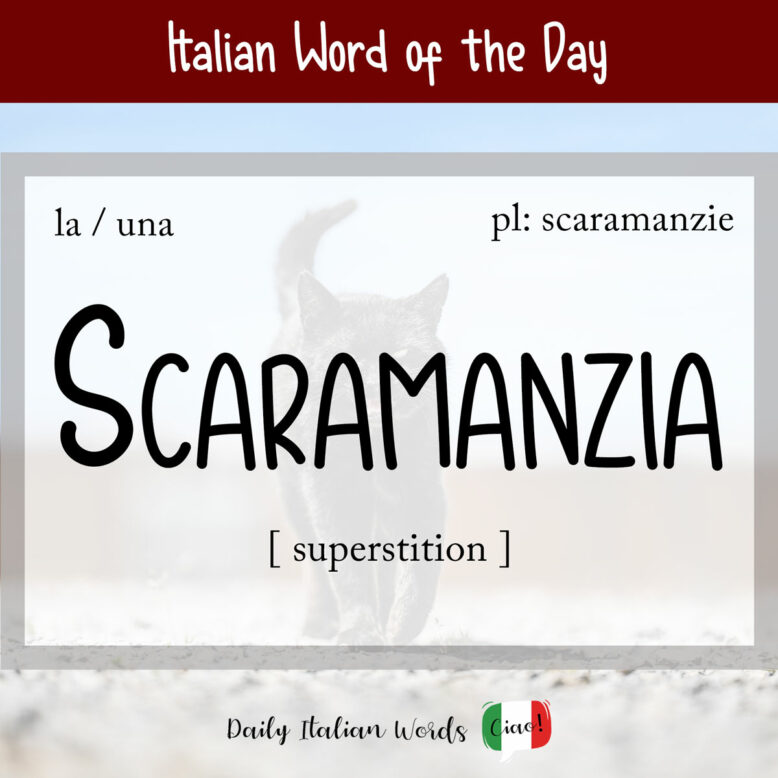Scaramanzia is a particular subset of superstizione (superstition) aimed at averting perceived negative influences associated with people, places, and objects through the use of phrases such as magic spells, gestures, and items like amulets and lucky charms. While these practices vary across cultures and time periods, they are prevalent worldwide, and Italy is no exception.
scaramanzia
superstition

A classic example of scaramanzia is the belief that saying or doing something could prevent or even cause the opposite outcome. For instance, there’s the notion that going out without an umbrella ensures rain, while carrying one guarantees it won’t rain.
Another prime example is the classic Italian phrase in bocca al lupo. Instead of wishing someone buona fortuna (good luck), you express a desire for them to be devoured by a wolf. This parallels the English phrase break a leg.
Although the etymology is uncertain, it is suspected that scaramanzia derives from chiromanzia (chiromancy), which is the act of predicting a person’s future by observing the lines on the palms of their hands.
Here are the definite and indefinite articles used with this feminine noun:
- la scaramanzia = the superstition
- le scaramanzie = the superstitions
- una scaramanzia = a superstition
- delle scaramanzie = some superstitions

You will often hear the expression per scaramanzia which means “to avoid attracting bad luck.” In English, it’s usually translated as for luck, just in case or just to be on the safe side.
Non diciamo nulla per scaramanzia!
Let’s not say anything, just to be on the safe side!
The adjective scaramantico (feminine: scaramantica) is used to describe someone with superstitious tendencies, and it can also be used as a noun to mean superstitious person.
Mia nonna è molto scaramantica: non passa mai sotto una scala.
My grandma is very superstitious: she never walks under a ladder.

Heather Broster is a graduate with honours in linguistics from the University of Western Ontario. She is an aspiring polyglot, proficient in English and Italian, as well as Japanese, Welsh, and French to varying degrees of fluency. Originally from Toronto, Heather has resided in various countries, notably Italy for a period of six years. Her primary focus lies in the fields of language acquisition, education, and bilingual instruction.


